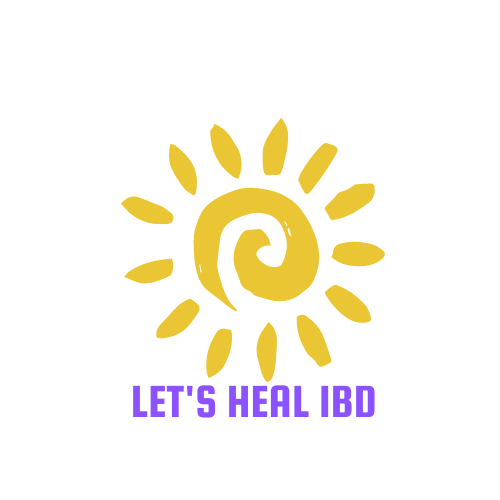IBD and Sleep
Sleep is a foundation of our health. Lack of sleep has a huge range of negative health impacts on our body. So how do IBD and sleep interact?
We will discuss

- Sleep and inflammation
- Sleep and the immune system
- Sleep and stress levels
- Sleep and cell damage
- Sleep and overall health
In today’s busy world, sleep is not prioritized. Even among natural, health care supporters. With sleep times becoming shorter in recent years. The effects are being noticed across all aspects of human health.
I believe that lack of sleep is an underlying issue for many of the varied health issues that our world faces today. This includes the connection between IBD and sleep.
IBD and Sleep: Inflammation
For patients with IBD. Controlling inflammation in the gastrointestinal tract is of paramount importance.
Having chronic inflammation in your bowel can cause a host of horrible symptoms. And life altering complications.
While there are so many things that contribute to inflammation in the body. Sleep is something that I feel is under discussed.
Harvard Health has investigated sleep and inflammation, focusing on sleep and blood vessels.
It has been found that even restricted sleep schedules, where patients got 6 hours of sleep per night. Increased inflammatory markers in the body.
These markers included CRP, an inflammatory marker in the blood.
Sleep and the Immune System
The connection between sleep and the immune system still needs more research. But the research that exists shows that there is a definite connection.
The immune system changes throughout the day. Immune cells are at their highest levels in the evening and over night. And lowest in the morning (after sleep).
If you do not get adequate sleep. It has been shown that the disruption of a normal sleep schedule can significantly affect immune function in humans.
Sleep and Stress
Most patients with IBD report that high levels of stress exacerbate their symptoms of IBD. Some patients report that a stressful event has caused them to go into a flare.
There is a lot of research on how sleep and stress are related. And research has found that the relationship between sleep and stress is cyclical.
45% of adults feel more stressed out when they do not receive enough sleep. And 43% of adults report that stress has caused them to lie awake at night, at least once in the past month.
So if you are stressed, you may have a hard time sleeping. And if you have a hard time sleeping, you may feel stressed. The relationship is cyclical.
While you are sleeping, the body has time to rest and recharge from the day. If you live a constantly busy life, this rest and recuperation is essential for long term health.
During sleep our memories consolidate. Our brains cleans out unwanted items, and make room for the next days tasks. Sleep allows us to better focus on the task at hand.
Without proper sleep we can feel frazzled, lethargic, and generally unwell.
Sleep, Cell Damage and Repair
While you are sleeping, your body is repairing itself. During the day the body is very busy. Digesting, thinking, processing, seeing, and orchestrating all the complex aspects of daily life.
When you are sleeping, your body has a chance to recover, and heal.
The intestine epithelial (thin outer layer) has the highest cell turnover rate of anything in the body. This layer is completely replaced every 5-7 days.
It has been found that in lab animals, who were forced to have sleep deprivation. The cell turnover rate in the intestines was much faster than in animals that had healthy levels of sleep.
This meant more dead cells found in the body. As the intestinal lining was created too quickly within the body. These dead cells increased metabolic burdens used to remove them.
Under normal conditions the digestive tract accounts for an estimated 15-20% of daily energy needs. Meaning that higher cell turnover rates. Increases the metabolic load needed to remove these dead cells.
This increase in cell production is associated with higher concentrations of DNA oxidative damage. And the increase in cell production, increases the frequency of cell replication errors.
Overall this indicates that a lack of sleep does affect the intestines. It creates higher cell turn over, which leads to greater metabolic stress. And an increase of cell replication errors.
Sleep and Overall Health

Although we are focusing on sleep and IBD, we know that you cannot look at our body as separate pieces of a whole. It must be viewed as a whole, interconnected, multi functional system.
Sleep affects all aspects of your health. From cardiovascular health, to mental health. It can affect hormone secretion, and digestive processes.
And there is a known connection between lack of sleep, cardiovascular disease, and cancer.
Reduction in sleep can be cumulative. Meaning that even a small reduction is sleep per night, can have detrimental effects over time.
It is estimated that 37.1% of Americans get less than 7 hours of sleep per night. These low levels lack of sleep can cause physiological and neurobehavioral issues. Which can become progressively worse, especially if you have chronic health issues as well.
In animals, prolonged lack of sleep has been found to result in death. Prolonged sleep deprivation affects a variety of systems including the endocrine, metabolic, and immune system health.
Sleep has a huge impact on our health. I would say that a regular sleep schedule is in the top five most important factors affecting our overall health. Luckily, it is something that is within our control.
Getting a regular 7-9 hours of good quality sleep is essential for your long term health. And there is a proven connection between sleep and IBD.
Getting the right amount of sleep can help you attain remission. And help keep you stay in remission long term.
